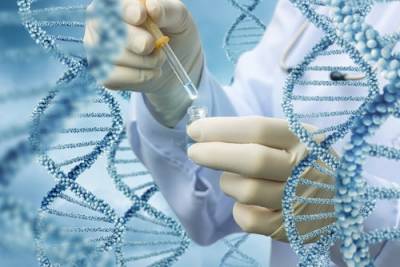How is DNA Testing Used in Illinois Paternity Cases?
Posted on November 09, 2020 in Paternity
 When a child is born to parents who are not married or who have never been married to one another, this can pose a few problems. Under Illinois law, a man is only presumed to be the father of a child if he was married to the mother when the child was born, or if the couple had been married within 300 days before the child’s birth. If neither is true, then the parents must establish legal paternity for the child another way. Many times, before a court will issue an Order of Paternity, it will require that the mother, alleged father, and child submit to genetic testing to determine the true biological father of the child.
When a child is born to parents who are not married or who have never been married to one another, this can pose a few problems. Under Illinois law, a man is only presumed to be the father of a child if he was married to the mother when the child was born, or if the couple had been married within 300 days before the child’s birth. If neither is true, then the parents must establish legal paternity for the child another way. Many times, before a court will issue an Order of Paternity, it will require that the mother, alleged father, and child submit to genetic testing to determine the true biological father of the child.
Genetic Testing Procedure in Illinois
A child gets half of his or her genes from the mother and the other half from the father. DNA testing works by comparing the genes of the child with the genes of both parents. The person conducting the genetic testing will be chosen by the court, but you are also permitted to conduct independent genetic testing if you so choose. The Illinois Paternity Act states that DNA samples can be from blood, bone, hair, or other bodily fluids, though the most common way to gather DNA samples is from a simple swab of the cheek.
Genetic testing is very accurate. If the man tested is not the biological father, it will be known with almost absolute certainty. On the other hand, if the test results show that the man is 1,000 times more likely to be the child’s father than an unrelated man chosen at random, the probability of paternity is at least 99.9 percent, and the man will be presumed to be the biological father under Illinois law.
What Happens After the Test Results Come Back?
After the results of the genetic test are received, the mother and the father will both be notified. If the alleged father is determined not to be the biological father, an Administrative Order of Non-Paternity will be issued by the Division of Child Support Services (DCSS), or an Exclusion Order will be issued by the court.
If the alleged father is indeed determined to be the biological father, DCSS will issue an Administrative Paternity Order or the court will issue a judicial Paternity Order. Either of these orders will allow the father to seek to establish parenting time and decision-making responsibilities and the mother to seek to establish child support.
Contact a DuPage County Paternity Attorney
Genetic testing is mainly done when the alleged father does not acknowledge the paternity of the child, but it can also be done if the mother is unsure of the identity of the child’s father. Paternity cases can be difficult, which is why having a compassionate and understanding Wheaton paternity lawyer by your side can be extremely beneficial. At Andrew Cores Family Law Group, we can guide you throughout the paternity process. Call us today at 630-871-1002 to schedule your free initial consultation.
Sources:
http://www.ilga.gov/legislation/ilcs/ilcs5.asp?ActID=3638&ChapterID=59
https://www.illinois.gov/hfs/SiteCollectionDocuments/hfs1759.pdf






 When a child is born to parents who are not married or who have never been married to one another, this can pose a few problems. Under Illinois law, a man is only presumed to be the father of a child if he was married to the mother when the child was born, or if the couple had been married within 300 days before the child’s birth. If neither is true, then the parents must establish legal
When a child is born to parents who are not married or who have never been married to one another, this can pose a few problems. Under Illinois law, a man is only presumed to be the father of a child if he was married to the mother when the child was born, or if the couple had been married within 300 days before the child’s birth. If neither is true, then the parents must establish legal
